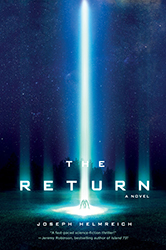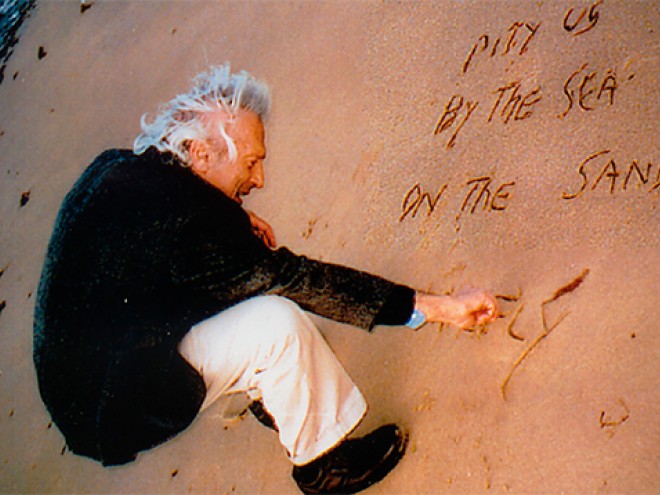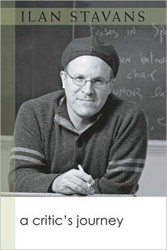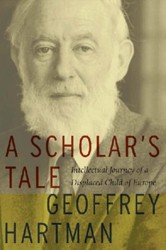Joseph Helmreich is the author of The Return, a science fiction novel about a vanished astrophysicist who reappears six years later and inspires a cult following — despite denying he was abducted or ever even missing. With the release of the book this Tuesday, Joseph is guest blogging for the Jewish Book Council all week as part of the Visiting Scribe series here on The ProsenPeople.
“Write what you know.” At some point, every beginning writer hears this controversial piece of advice. While there’s been considerable debate over its exact meaning, there’s no denying that its simplest interpretation has allure. Does anyone think John Updike could have written about Newark Jews with the same insight and realism as Philip Roth? Or that Roth, working out of his clapboard house in Connecticut, could have composed a story collection about Indian Americans to rival Interpreter of Maladies? Knowledge and experience breed authenticity and authenticity matters; this is especially true in today’s cultural landscape, where the trait is no longer seen as merely an artistic virtue but — as the recent controversy surrounding Lionel Shriver’s comments at the Brisbane Writers Festival demonstrates — often a moral one, as well. The writer who relies too heavily on imagination over life experience can invite charges of cultural insensitivity or, worse, appropriation.
But “write what you know” is more than just pragmatic or even ethical advice. The maxim reflects the genuine artistic impulse to share. Writers have deep, personal connections to what they know, and writing about these subjects — their hometowns, families, communities, personal struggles, etc. — often transcends the simple transfer of knowledge. The writer bares their soul, exorcises their psychological demons, bring us into their world, and in doing so, bonds with the reader as the personal gradually transfigures into the universal.
And yet, there are other kinds of writers and other reasons to write. In fact, we sometimes learn the most from the writers who started out knowing the least. When Tom Wolfe delved into the variously alien worlds of psychedelic hippiedom, fighter jocks and astronauts, and Wall Street “Masters of the Universe”, he emerged with works of prose that are not only realistic and engaging, but are widely regarded as definitive. As opposed to being limited by his ignorance, Wolf used his outsider status to his advantage, dressing deliberately out of place in flashy white suits so as to provoke people into explaining things to him. Like the great journalist he is, writing for Wolfe has always been a process of learning as much as teaching and, in both his fiction and non-fiction, he takes his readers along for the ride. If Tom Wolfe or Joan Didion or Margaret Atwood or even Philip Roth had embarked on all their books by considering only what they already knew, their oeuvres would undoubtedly be thin and far less interesting.
When I began writing my science fiction novel, The Return, I didn’t consciously set out to explore topics with which I was unfamiliar. But when the story demanded it, I didn’t fight it either, and so I soon found myself researching quantum mechanics (I was a C+ physics student), Catholicism (I’m an observant Jew), and coastal Spain (my European excursions are largely limited to the concentration camps in Poland). I can’t say that my treatment of these subjects will necessarily read as accurate to those more familiar with them.
I also readily admit that in my book’s genre, that might not matter much. Authenticity is inevitably less scrutinized in a sci fi thriller than it is in literary fiction. In a book like mine, the plotting much more than the setting, prose, or dialogue, is the lifeblood of the story.
 Still, I’m sure there are many who would have encouraged me to stick to what I “knew” and in some sense, they’d be right. My descriptions of Spain will never match Cervantes or Javier Marías’s. I can’t expound on theoretical physics like Neil deGrasse Tyson and my writings on Christian theology probably fall short of Dan Brown’s, to say nothing of Milton’s. I hope I got more right than wrong, but either way, for me, the challenge of tackling these less familiar subjects made for a richer and more exciting writing experience. I’d like to think that the sense of adventure and curiosity it brought out in me will also be contagious to the reader.
Still, I’m sure there are many who would have encouraged me to stick to what I “knew” and in some sense, they’d be right. My descriptions of Spain will never match Cervantes or Javier Marías’s. I can’t expound on theoretical physics like Neil deGrasse Tyson and my writings on Christian theology probably fall short of Dan Brown’s, to say nothing of Milton’s. I hope I got more right than wrong, but either way, for me, the challenge of tackling these less familiar subjects made for a richer and more exciting writing experience. I’d like to think that the sense of adventure and curiosity it brought out in me will also be contagious to the reader.
“Write what you know” is useful advice, but, like all artistic advice, it needs to be taken with a good dose of skepticism and applied carefully. In the end, a spirit of openness, possibility and risk-taking may be more valuable than a timeworn adage that, sensible as it may be, ultimately encourages us to play it safe.
Joseph Helmreich is the author of The Return and co-author of Warring Parents, Wounded Children and the Wretched World of Child Custody. In addition to his writing, he is a member of the alternative folk duo Honeybrick. He lives in New York City and works in film distribution.
Related Content:
- Sophie Cook: Writing in Between Whatever
- Amy Gottlieb: The Women at the Kitchen Table
- Paul Goldberg: Po-wer-ful: Fashioning the Character of Joseph Stalin
Joseph Helmreich is the author of The Return (2017, Thomas Dunne Books/St. Martin’s Press) and co-author of Warring Parents, Wounded Children and the Wretched World of Child Custody (Greenwood Press, 2008). In addition to his writing, he is a member of alternative folk duo, Honeybrick. He lives in New York City and works in film distribution.




